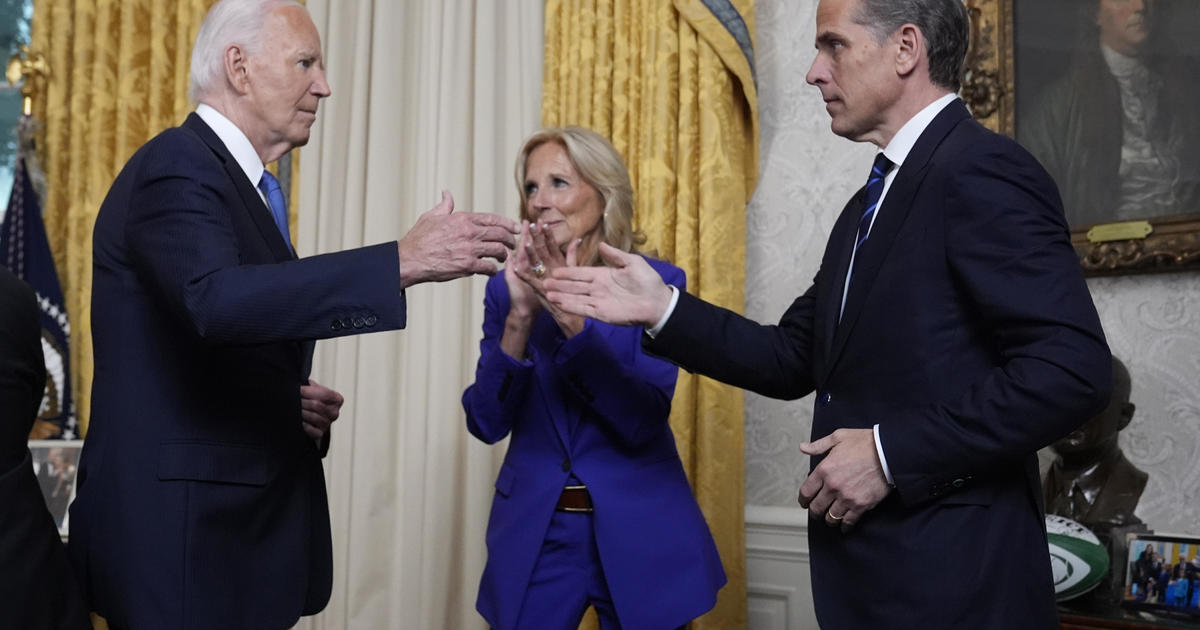President Biden made headlines on Sunday when he issued a sweeping pardon for his son, Hunter Biden. Hunter had been convicted earlier in the year on federal gun and drug charges, as well as pleading guilty to tax charges in California. The presidential pardoning process has always been a controversial topic, especially when presidents issue pardons as they are leaving the White House. One of the most famous and controversial pardons in history occurred less than a month into President Gerald Ford’s term when he pardoned Richard Nixon for all offenses against the United States that he may have committed.
The concept of the presidential pardon is rooted in Article II, Section 2 of the Constitution, which grants the president the power to grant reprieves and pardons for offenses against the United States. There are four different types of clemency that fall under the president’s pardoning power: pardon, amnesty, commutation, and reprieve. A pardon releases a person from punishment and restores all civil liberties, while amnesty extends the same to an entire class of individuals. Commutation reduces the sentence imposed by a federal court, and a reprieve delays the imposition of a sentence or punishment.
To be pardoned, a person must have been convicted in a United States District Court, the Superior Court of the District of Columbia, or a military court-martial. This means that a president cannot issue a pardon for a state conviction. While the Office of the Pardon Attorney at the Department of Justice issues guidelines for the application of clemency, presidents are not required to follow them.
A presidential pardon can help eliminate some of the consequences of conviction and restore a person’s civil rights. The offense is not removed from a person’s criminal record when they are pardoned, but the conviction and the pardon both appear on the record. This can be helpful in obtaining licenses, bonding, or employment.
Hunter Biden is the 26th person that President Biden has pardoned so far. Most of the pardons relate to drug offenses, following a practice started by former President Barack Obama. In September 2023, President Biden granted clemency for three Iranians who were accused of moving $6 billion in a restricted Iranian account as part of a prisoner swap. In comparison, during the same point in his first term, President Donald Trump had pardoned 29 people.
President Trump issued a slew of pardons shortly before leaving office in January 2021. He pardoned 74 people and commuted the sentences of another 70 individuals. Among those pardoned were Steve Bannon, GOP fundraiser Elliott Broidy, Albert J. Pirro, and rapper Lil Wayne. Throughout his term, Trump also pardoned figures like Sheriff Joe Arpaio, Dinesh D’Souza, Michael Flynn, and the Oregon ranchers Dwight L. Hammond and Steve D. Hammond.
Overall, Trump issued 237 acts of clemency, including 143 pardons and 94 commutations during his four years in office. Obama, on the other hand, issued 212 pardons and 1,715 commutations, including for 568 people serving life sentences. Obama’s Clemency Initiative aimed to provide leniency to federal prisoners, especially those serving for nonviolent drug offenses.
President George H.W. Bush issued the most pardons in history, granting 3,687 pardons during his 13 years in office. While President Biden is the first president to pardon his son, he is not the first to pardon a family member. Former President Bill Clinton pardoned his brother Roger Clinton, and Trump pardoned Charles Kushner, his son-in-law’s father. Abraham Lincoln also pardoned his sister-in-law under the Proclamation of Amnesty and Reconstruction.
Presidents have the authority to issue preemptive pardons, as seen in Ford’s pardon of Nixon and Carter’s pardon of Vietnam draft evaders. George H.W. Bush also pardoned his secretary of defense, Caspar Weinberger, before his trial in the Iran-Contra scandal. President Biden’s pardon of Hunter covers any crimes Hunter may have committed from 2014 to 2024, even if he has not yet been charged.
The language in the Constitution does not include any provision for revoking pardons, but only a few presidents have exercised that power. Ulysses S. Grant reversed three of Andrew Johnson’s pardons on his first day in office. President George W. Bush revoked one of his own pardons shortly after issuing it due to new information that came to light.
In conclusion, presidential pardons have been a controversial aspect of American politics throughout history. Each president has the authority to issue pardons, and the process has evolved over time. From the power to grant clemency to family members to the ability to issue preemptive pardons, the presidential pardon remains a significant aspect of the executive branch’s authority.









